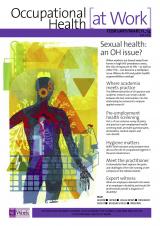February/March 2014 (vol. 10/5)
ContentsFeaturesNewsLegal
NewsResearch DigestResearch PlusCPD
Research Plus
Return to work after injury
Patients’ own assessments of the severity of an accident and their ability to cope with their injury strongly predicts how much time they will take off before returning to work, according to this prospective follow-up study from a Swiss hospital. A total of 221 working-age participants hospitalised with an unintentional injury (traffic, home or work accident) were assessed using the Injury Severity Score (ISS) and the Glasgow Coma Score (those with a GCS below 9 were excluded). Socioeconomic characteristics were assessed by semi-structured interview; self-perceived injury severity and ability to cope were measured on five-point Likert scales; and post-traumatic psychological symptoms were evaluated using the Impact of Event Scale (IES).
Sickness absence was measured at six months, and varied from six to 183 days (mean = 96 days). Regression analysis revealed that ISS, sex, age, type of accident and IES intrusion scores together predicted about 25% of the variance in the time off work at six months (p<0.001), with the individual’s perception of their injury severity and ability to cope together accounting for an additional 9% (p<0.001). Patients who perceived their accident severity as higher and their coping skills as lower had twice as many days off compared with those who rated their accident severity as lower and coping skills as higher – mean difference = 68 days (p<0.001).
Return to work following unintentional injury: a prospective follow-up study. BMJ Open 2013; 3:e003635
Occupational Health at Work February/March 2014 (vol. 10/5) pp41



